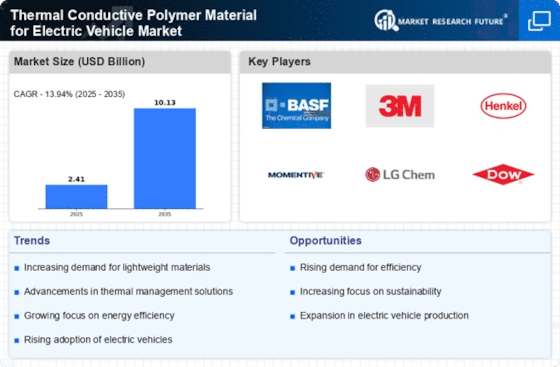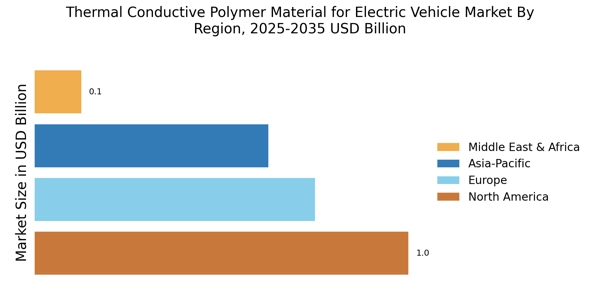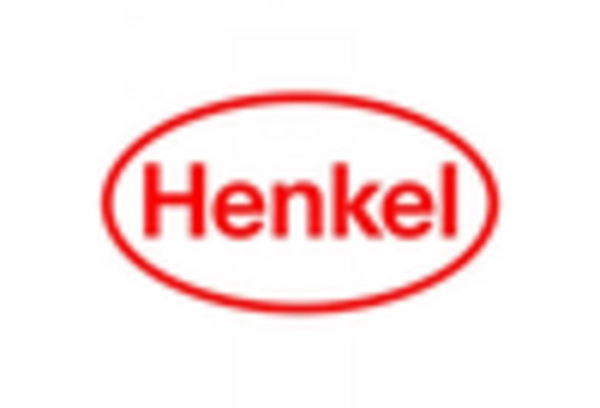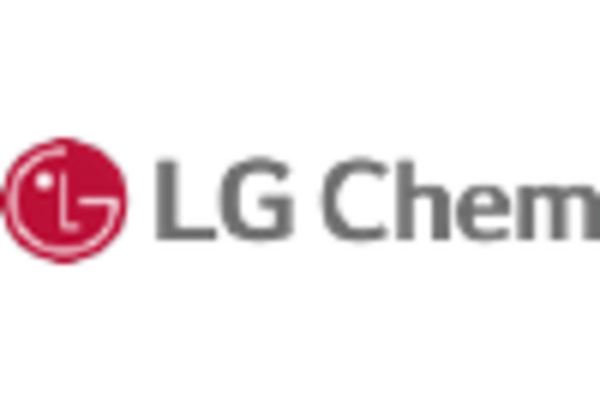Focus on Lightweight Materials
The automotive industry is increasingly prioritizing lightweight materials to improve energy efficiency and performance in electric vehicles. The Thermal Conductive Polymer Material for Electric Vehicle Market is benefiting from this trend, as these polymers offer a favorable strength-to-weight ratio. By replacing heavier metals with lightweight polymers, manufacturers can reduce vehicle weight, which in turn enhances battery range and efficiency. In 2025, the demand for lightweight materials in EVs is anticipated to rise, with thermal conductive polymers playing a pivotal role in achieving these objectives. This shift not only supports sustainability goals but also aligns with consumer expectations for high-performance vehicles.
Rising Demand for Electric Vehicles
The increasing consumer preference for electric vehicles (EVs) is a primary driver for the Thermal Conductive Polymer Material for Electric Vehicle Market. As governments and organizations worldwide implement stringent emission regulations, the shift towards EVs accelerates. In 2025, the EV market is projected to grow significantly, with estimates suggesting that sales could reach over 10 million units annually. This surge in demand necessitates advanced materials that enhance thermal management, thereby boosting the adoption of thermal conductive polymers. These materials are essential for efficient battery cooling and overall vehicle performance, making them indispensable in the evolving automotive landscape.
Growing Investment in EV Infrastructure
The expansion of electric vehicle infrastructure is a critical driver for the Thermal Conductive Polymer Material for Electric Vehicle Market. As charging stations and support systems proliferate, the need for efficient thermal management solutions becomes more pronounced. Investments in EV infrastructure are projected to reach unprecedented levels, with billions allocated to enhance charging capabilities and battery technologies. This growth creates a favorable environment for thermal conductive polymers, which are essential for managing heat in charging systems and battery packs. The synergy between infrastructure development and material innovation is likely to propel the market forward, ensuring that thermal management solutions keep pace with the evolving EV landscape.
Regulatory Support for Sustainable Materials
Government regulations promoting the use of sustainable materials are influencing the Thermal Conductive Polymer Material for Electric Vehicle Market. As environmental concerns gain prominence, policies encouraging the adoption of eco-friendly materials are becoming more prevalent. This regulatory support is likely to drive the demand for thermal conductive polymers, which can be engineered to be more sustainable than traditional materials. In 2025, the market is expected to see a significant increase in the use of bio-based and recyclable polymers, aligning with global sustainability initiatives. This trend not only meets regulatory requirements but also appeals to environmentally conscious consumers.
Technological Advancements in Thermal Management
Innovations in thermal management technologies are propelling the Thermal Conductive Polymer Material for Electric Vehicle Market forward. Enhanced thermal conductivity properties of polymers are being developed to meet the rigorous demands of modern EVs. For instance, the introduction of new polymer composites with improved heat dissipation capabilities is likely to enhance battery life and performance. As the industry moves towards higher efficiency and performance standards, the integration of these advanced materials becomes crucial. The market for thermal conductive polymers is expected to expand as manufacturers seek to optimize vehicle designs and improve energy efficiency.


















